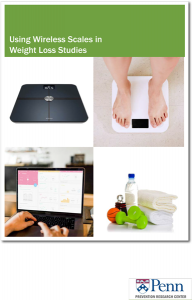Congratulations PRC Researcher Amy Bleakley: 2016 LDI Senior Fellow
 Congratulations to UPenn PRC Researcher Amy Bleakley, PhD, one of nineteen new Senior Fellows at the Leonard Davis Institute.
Congratulations to UPenn PRC Researcher Amy Bleakley, PhD, one of nineteen new Senior Fellows at the Leonard Davis Institute.
LDI’s 200+ Senior Fellows bridge seven schools and institutes within the University of Pennsylvania. They produce innovative, multidisciplinary research in the management, organization, financing and delivery of health care.
Bleakley joins a distinguished list of PRC Directors and Researchers already named Senior Fellows at LDI:
- David Asch, MD, MBA
- Charles Branas, PhD
- Alison Buttenheim, PhD, MBA
- Carolyn Cannuscio, ScD, ScM
- Peter Cronholm, MD, MSCE
- Chyke Doubeni, MD, FRCS, MPH
- Karen Glanz, PhD, MPH
- David Grande, MD, MPA
- Carmen Guerra, MD, MSCE
- John Holmes, PhD
- Amy Jordan, PhD
- Jason Karlawish, MD
- Judith Long, MD
- Daniel Polsky, PhD, MPP
- Marilyn Schapira, MD, MPH
- Jeffrey Silber, MD, PhD
- Kevin Volpp, MD, PhD
- Douglas Wiebe, PhD

